Judi Lynn
Judi Lynn's JournalHONDURAS, 2009. LEGACY OF A COUP UNDER THE SHADOW, EPISODE 7, PART 2
(There is a podcast in this link. I just saw this episode today for the first time, and discovered the other episodes are available, as well. What they can do for anyone is provide an excellent review of US policy toward the Americas South of the border as it really happened, not as it was portrayed through the US corporate media. The people of the Americas are very keenly aware of what has been happening all these years, unless they identify with the predator class in each country. )The list of the other podcasts in the series is linked at the bottom of this post.
Police occupy the National Institute of Agrarian Reform in Tegucigalpa on September 30, 2009. Photo by YURI CORTEZ/AFP via Getty Images
POSTED IN UNDER THE SHADOW
HONDURAS, 2009. LEGACY OF A COUP | UNDER THE SHADOW, EPISODE 7, PART 2
Honduras’s return to democracy after the 2009 U.S.-backed coup is a heroic story of popular resistance.
In June 2009, Honduras faced a devastating coup that shattered the country’s fragile democracy and sunk the country into violence, repression, and a decade-long narco-dictatorship.
But the people fought back.
In this continuation of Episode 7, host Michael Fox looks at the fallout of the 2009 coup in Honduras, walking from 2009 into the present. He takes us to Tegucigalpa to dive into the fraudulent U.S.-backed elections that ushered in a narco-dictatorship, and also the resistance movement that, after years of struggle, ultimately did what it set out to do: remove the dictatorship and return democracy to Honduras.
This is Part 2 of a two-part episode looking at the 2009 coup in Honduras and the aftermath.
Under the Shadow is a new investigative narrative podcast series that walks back in time, telling the story of the past by visiting momentous places in the present.
In each episode, host Michael Fox takes us to a location where something historic happened — a landmark of revolutionary struggle or foreign intervention. Today, it might look like a random street corner, a church, a mall, a monument, or a museum. But every place he takes us was once the site of history-making events that shook countries, impacted lives, and left deep marks on the world.
Hosted by Latin America-based journalist Michael Fox.
This podcast is produced in partnership between The Real News Network and NACLA.
~ ~ ~ ~ ~ ~ ~ ~ ~ ~ ~
TRANSCRIPT
Michael Fox: Hi, I’m your host, Michael Fox.
Two things I want to say before we get started. First, today’s episode is Part 2 of Episode 7, where we look at the 2009 US-backed coup in Honduras. We ended up breaking this episode into two parts because there’s just so much to dig into here. If you haven’t listened to Part 1 yet, I suggest you go back and do that first. It’ll set the scene for everything we dive into today.
Second, many portions of today’s episode deal with harsh themes from the years following the 2009 coup in Honduras. If you’re sensitive to this, or you’re in the room with small children, you might want to consider another time to listen. OK. Here’s the show…
So the Brazilian embassy is down this this side street in this residential neighborhood, kind of a northern Tegucigalpa. You can tell that this is a spot with many embassies here because literally the street just adjacent to it is the Republic of Panama, and this one we’ve got Balboa Street, but on my Google Maps it actually says Brazil Brazil St.
And then these two-story buildings kind of go back. It’s behind this gate. So it almost looks like a gated gated neighborhood. Many of the, you know, it’s tree lined streets. Pretty, Quaint. You tell this has been kind of an upscale. Section of Tegucigalpa for a long time. Cars rumble back and forth. There’s a Chinese restaurant right here. That can actually smell the Chinese food from where I’m standing. Just half a block away from the Brazilian embassy behind this fence. And it was here that Manuel Zelaya was was holed up. For months.
Four months total. Back in late 2009, there was a constant line of state security forces outside the embassy. Meanwhile, Zelaya, his wife, Xiomara Castro, and their daughter lived in the cramped two-story home, alongside four dozen embassy workers.
It’s really wild being here because a lot of the different episodes that I’ve been working on are things that happened way in the past. But right here, was the 2009 was the coup against Manuel Zelaya. I remember this moment. I was following what was happening very, very closely from Brazil. Had friends on the ground. And so it’s really strange to be here now and to see this up close and be thinking of this as history, because it’s so present. It’s still so present, right?
Zelaya arrived at the Brazilian Embassy in September 2009, returning from exile in Costa Rica. The calculation at the time was that Zelaya’s return would keep the spotlight on Honduras and the internationally condemned coup that removed him from power three months earlier.
More:
https://therealnews.com/honduras-2009-legacy-of-a-coup-under-the-shadow-episode-7-part-2
~ ~ ~ ~ ~ ~ ~ ~ ~ ~ ~ ~ ~ ~ ~ ~ ~
Under the Shadow
A podcast on US intervention and revolutionary resistance in Latin America, and all the ghosts that still linger, from independent journalist Michael Fox. Co-produced by The Real News Network and NACLA (North American Congress on Latin America).
https://www.spreaker.com/podcast/under-the-shadow--5958129
Hondurans cheer a rare win over their corrupt politicians, far from home
A US court convicts former right-wing President Juan Orlando Hernandez of narco-trafficking.
By Jared Olson
Published On 11 Mar 2024
11 Mar 2024
New York City, New York – The defendant, greying and pale after two years in a jail cell, lowered his head in a final prayer as the verdict was read.
For almost three weeks, defence lawyers for former Honduran President Juan Orlando Hernandez had tried to persuade jurors in a federal courtroom here that the state’s witnesses of convicted drug traffickers and murderers were liars and their testimony – that they operated under the former president’s protection as part of a “narco-state” – was untrustworthy.
But Hernandez’s prayers would go unanswered and his attorneys’ words unheeded as jurors found the ex-president guilty on all three counts of drugs and weapons charges, concluding a fall from grace so epic that it mirrors that of late Panamanian President Manuel Antonio Noriega, who was convicted 32 years ago in a federal courthouse in Miami of accepting millions of dollars in bribes from the Medellin drug cartel.
Like Noriega, Hernandez was once a staunch United States ally in its “War on Drugs”. Representing a deeply conservative Honduran political party, Hernandez portrayed himself as a law and order candidate in his 2013 presidential campaign, promising to reduce the flow of illegal drugs into the country and the violence that stemmed from it.
He did neither, according to the Honduran people, and instead ushered in a period of state repression targeting dissidents and the country’s Indigenous and Afro-Caribbean population, the most notable of whom was the environmental activist Berta Caceres, who was assassinated in 2016 by a local business executive with ties to the government.
More:
https://www.aljazeera.com/news/2024/3/11/hondurans-cheer-a-rare-win-over-their-corrupt-politicians-far-from-home
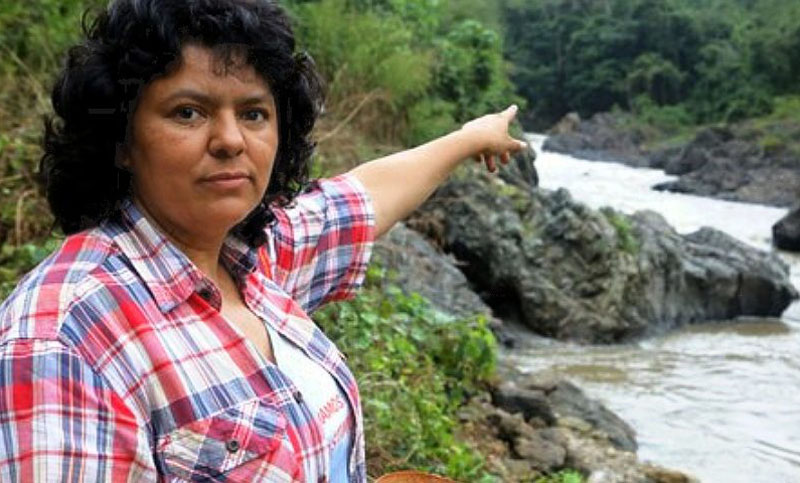
Berta Cáceres, murdered by Honduran oligarchs, cherished, respected by Honduran citizens.
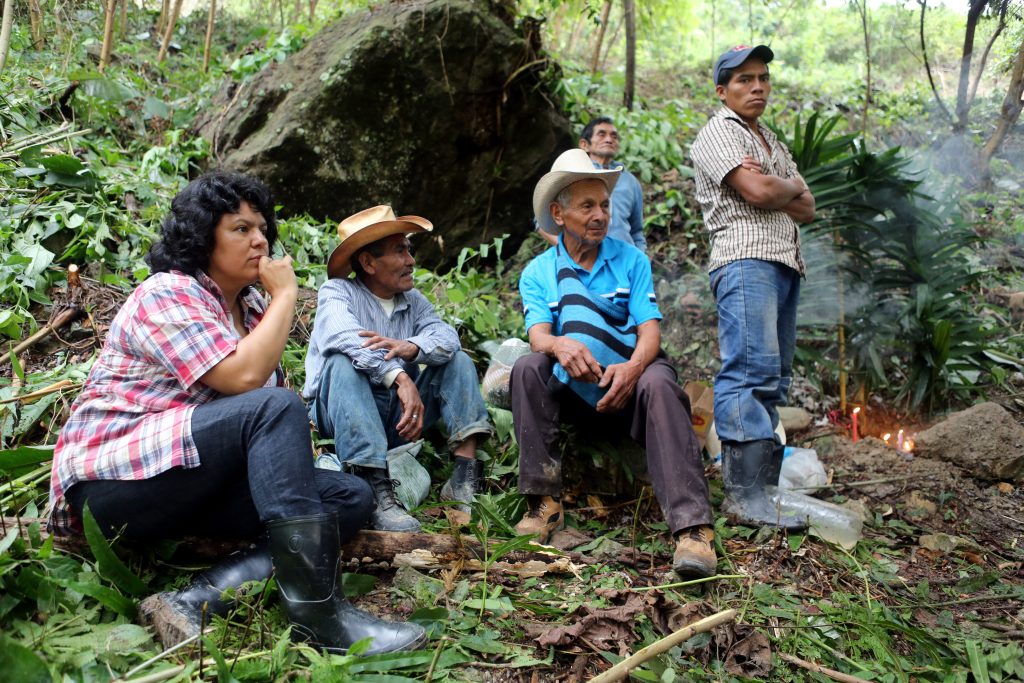
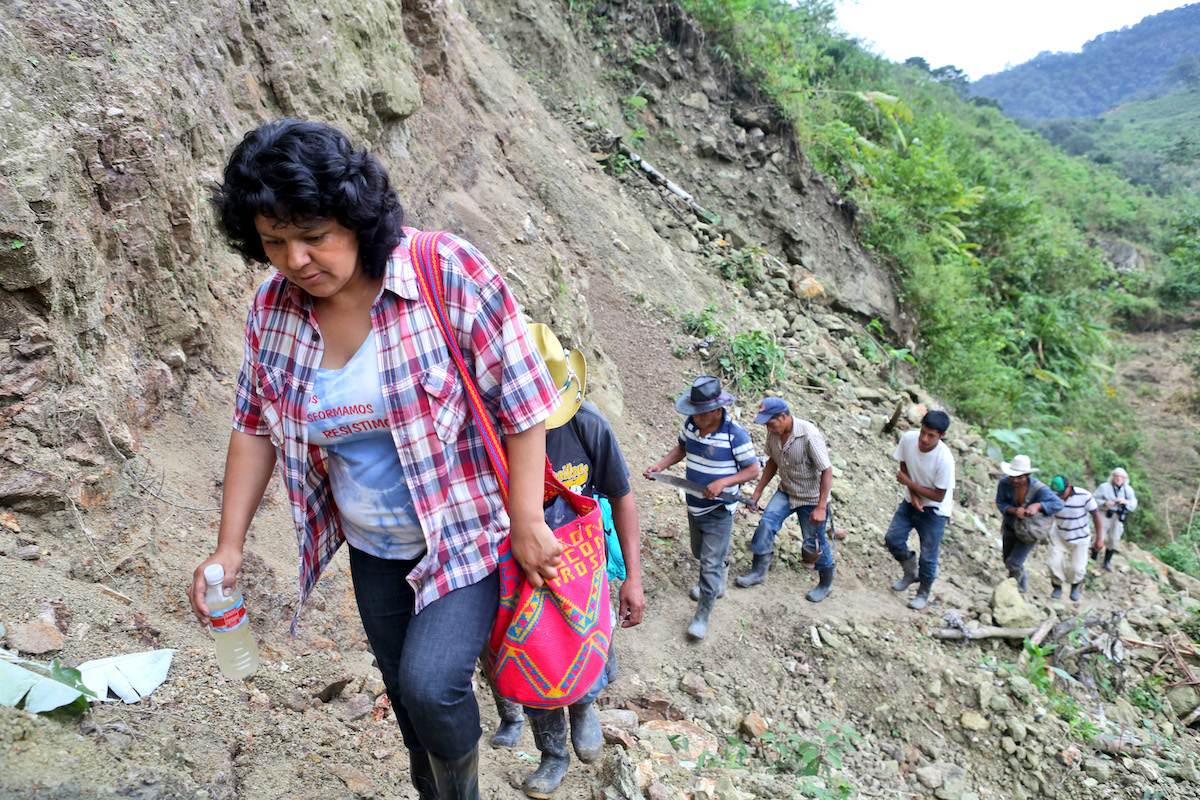
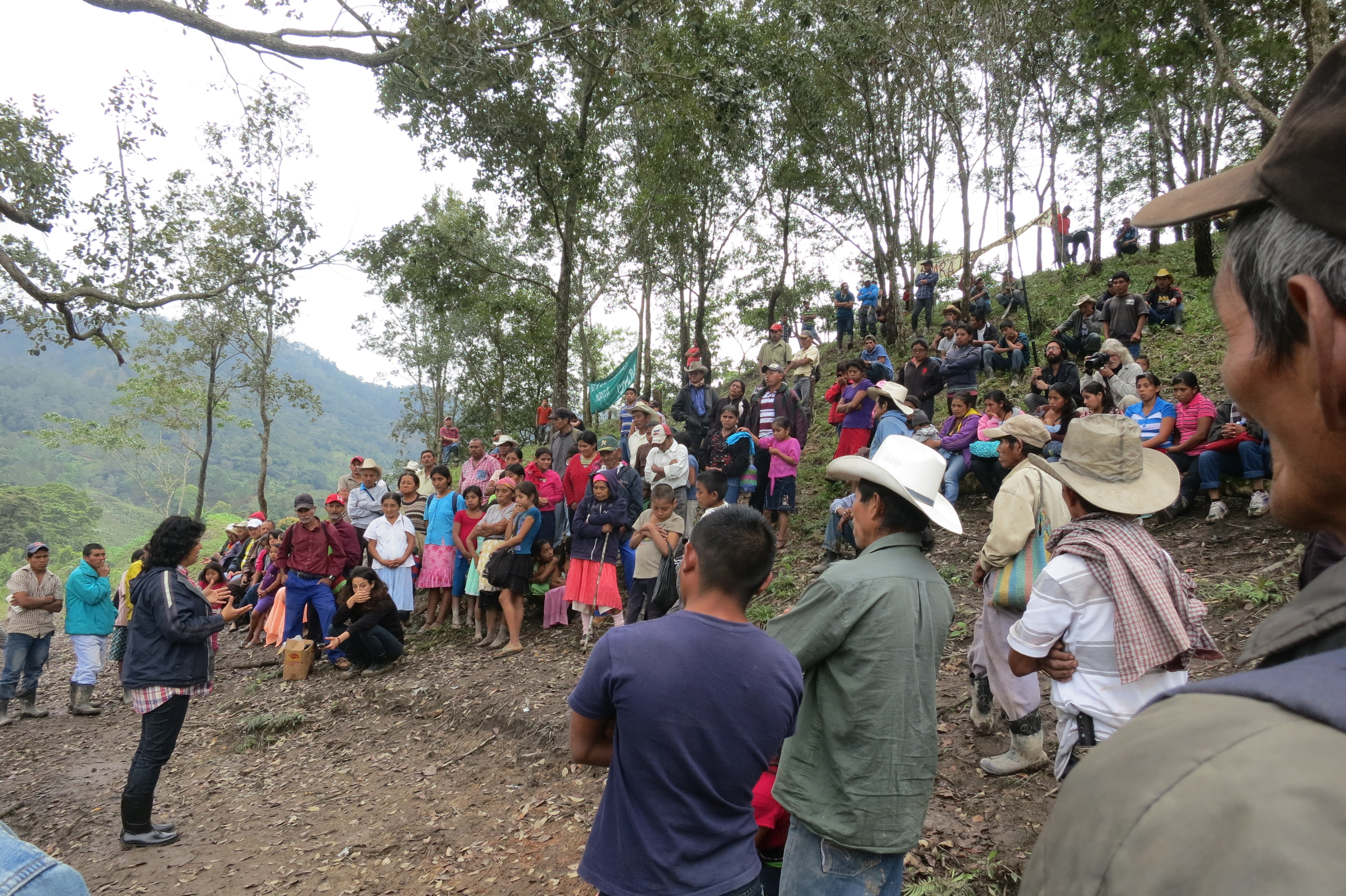


Brazil's Supreme Court Justices: Amnesty for Bolsonaro Illegal, Predicted to Fail
Former congressman Daniel Silveira's pardon veto reinforces view that crimes against democracy aren't eligible for benefits
Mar.4.2024 1:30PM
Matheus Teixeira
BRASÍLIA
Supreme Court (STF) justices assert behind the scenes that there is no chance for a possible amnesty for Jair Bolsonaro (PL) or those convicted for involvement in the January 8 attacks to be valid and implemented to absolve the former president and his allies from potential trial in the court.
In private conversations, justices assess that the former president's proposal for Congress to approve such a measure is another tool to rally the Bolsonaro base and pressure the court. They say that an amnesty, even if approved by Congress, would have no practical effect because it would surely be annulled by the Supreme Court.

São Paulo, SP, BRASIL, 25/02/2024: Pro-Bolsonaro Rally on Avenida Paulista (Foto: Bruno Santos/ Folhapress)
Supreme Court members assert privately that the precedent set in the annulment of the pardon granted to former congressman Daniel Silveira is a parameter to analyze the case and indicate that the court would have a comfortable majority to invalidate an amnesty.
At the time, the court decided that crimes against democracy are not eligible for amnesty, clemency, or pardon.
Thus, Bolsonaro could be granted amnesty in a congressional project regarding the investigation of the jewels and the forgery of a vaccination document, for example, but not in the case investigating a plot to impose a coup d'état to prevent President Lula (PT) from taking office after the 2022 elections.
https://www1.folha.uol.com.br/internacional/en/brazil/2024/03/brazils-supreme-court-justices-amnesty-for-bolsonaro-illegal-predicted-to-fail.shtml
Brazil's Lula pulls off trick twice, wooing Wall Street and the poor
Andrew Rosati and Maria Eloisa Capurro | Bloomberg
22 hrs ago
In his first spell as Brazil’s president, Luiz Inacio Lula da Silva managed to keep both low-income voters and Wall Street investors happy. In his first year back in power, he has pulled off the same rare trick.
The $2 trillion economy expanded close to 3% in 2023 - triple what analysts were expecting in January when Lula returned to office. Inflation has slowed and polls show the president’s supporters, predominantly poorer Brazilians, feel that he’s delivering. Meanwhile, the stock market jumped to an all-time record and the country’s credit rating was improved.
Now the question is if the set of economic ideas that made the Brazilian leader successful - which can be loosely defined as Lulanomics - can go through 2024, a year when slowing activity, looming fiscal constraints and a difficult midterm election will pose a major test to his strategy.
The Lula of two decades ago rode a multi-year commodity boom that generated cash for his trademark poverty-fighting programs while undertaking big infrastructure projects and doling out cheap public loans - all without scaring investors who fret about budget blowouts or government interference with the central bank.
More:
https://www.postguam.com/the_globe/world/brazil-s-lula-pulls-off-trick-twice-wooing-wall-street-and-the-poor/article_eff52e26-d8a2-11ee-a362-479be8fd09fa.html
This article should be noted by people who need to start recognizing actual lies told by people who know they're lying:
If it's not 100% obvious to you, it's time to get busy and realize it's all total crap. You need to look for the truth, which most of us learned is much harder to see, concerning Latin America and what is passing as "news" in the corporate media all these long, long years. No time like the present.
Squad members Ilhan Omar and Pramila Jayapal called 'communist sympathizers' and 'anti-American' for their secret trip to Cuba and bid for regime to be taken OFF state-sponsored terror list
By JON MICHAEL RAASCH, POLITICAL REPORTER IN WASHINGTON, D.C., FOR DAILYMAIL.COM
PUBLISHED: 17:30 EST, 1 March 2024 | UPDATED: 17:30 EST, 1 March 2024'
Following a secretive visit to communist Cuba, two top progressive 'Squad' members are catching flak for being anti-American.
Reps. Ilhan Omar, D-Minn., and Pramila Jayapal, D-Wash., the top two leaders of the Congressional Progressive Caucus, made an unpublicized trip to the Caribbean island in February while the House was in recess.
The congresswomen, who are longstanding critics of the U.S. embargo on the island nation, said they were there to 'meet with people from across Cuban civil society.'
. . .'
The progressive lawmakers led a delegation of about a dozen people including a staffer from the office of California Rep Barbara Lee's office, the Miami Herald reported.
A spokeswoman for the 100-strong Congressional Progressive Caucus gave a brief explanation for the visit by its chair and deputy chair.
'Representatives Jayapal and Omar traveled to Cuba last week, where they met with people from across Cuban civil society and government officials to discuss human rights and the US-Cuba bilateral relationship,' she said.
There are strict restrictions on travel to the island which was placed back on the list of state sponsors of terror by President Trump in January 2021.
More:
https://www.dailymail.co.uk/news/article-13147163/squad-ilhan-omar-pramila-jayapal-secret-cuba-trip-critcism.html
~ ~ ~
The reactionary hard right has been bellowing this same package of pure BS since the beginning of the 1960's, without taking a breath, even though the rest of the world believes the US should drop the hostilities immediately, and has said so for decades.
As a former Head of the US Interests Section in Havana, Wayne S. Smith said,
“Cuba seems to have the same effect on American administrations that the full moon once had on werewolves.”
I have NEVER supported the right wing filthy war on this tiny island as anyone knows who's attended the same message boards I have, starting in 1999 with CNN's message board system at the time, the Miami Herald, etc., etc., etc.
~ ~ ~
Here's a more responsible article, written by the Jimmy Carter US Interests Section Head in Havana, Wayne Smith:
Bush and Cuba: Still the Full Moon
Wayne S. Smith
September 25, 2007
If I am remembered at all (which isn’t likely), it will probably be for having said in my first op-ed piece in the New York Times after leaving the U.S. Foreign Service back in 1982 that “Cuba seems to have the same effect on American administrations that the full moon once had on werewolves.” Twenty-two years later, that is unchanged. Indeed, as one analyzes the Bush administration’s policies toward Cuba, one imagines a distant (and distinctly irrational) howling!
The cold war is long since over. Our own Pentagon acknowledges that Cuba poses no threat whatsoever to U.S. security. There is no evidence that Cuba is or has been in any way involved with terrorist efforts against the United States. On the contrary, Castro has offered to cooperate fully in the fight against terrorism and even proposed signing agreements to that effect with the United States. But none of that has softened Bush’s approach one bit. Instead, his is the harshest policy yet against the island nation. Bush indeed seems to have entered the White House with the intention of getting rid of the Castro regime, not to negotiate with it or to reach some modus vivendi. As Assistant Secretary of State Roger Noriega put it to Congress on October 2 last year: “The President is determined to see the end of the Castro regime and the dismantling of the apparatus that has kept him in office for so long.”
This past January, Bush closed all channels for dialogue, even suspending the twice-yearly migration talks. He also appointed a Commission for Assistance to a Free Cuba to recommend ways, first, of bringing about “an expeditious end of the dictatorship,” and then to develop a plan for assisting the Cuban people in “a post-dictatorship Cuba.”
For 45 years now, Washington has used pressure and threats against Castro. The embargo has been in place for 44 years, travel controls of one kind or another almost as long. So now Bush simply proposes more of the same, only in strengthened doses.
The first thing that must be said is that it won’t work. It takes us in exactly the wrong direction. There is a hard-and-fast rule that no U.S. administration has understood (or at least accepted): the more we threaten and pressure, the more we try to choke Cuba economically, the more defensive will be the reaction of the Cuban government, and the more it will call for greater internal discipline and for all to rally around the flag against the threat from the Colossus of the North. In other words, it leads not to liberalization but to tighter internal controls. We must remember that since at least 1902, when the Platt Amendment turned Cuba into a U.S. protectorate, Cubans have seen the United States as the principal threat to their sovereignty and independence. They react to our policies accordingly.
More:
https://nacla.org/article/bush-and-cuba-still-full-moon
How the Memory of a Song Reunited Two Women Separated by the Trans-Atlantic Slave Trade
FEBRUARY 29, 2024 7:15 A.M.
In 1990, scholars found a Sierra Leonean woman who remembered a nearly identical version of a tune passed down by a Georgia woman’s enslaved ancestors

Two unidentified Gullah Geechee women photographed by Lorenzo Dow Turner in the early 1930s Anacostia Community Museum
In 1933, the pioneering Black linguist Lorenzo Dow Turner met an elderly Gullah Geechee woman named Amelia Dawley in a remote coastal village south of Savannah, Georgia. While Turner recorded, Dawley sang a song of unknown origin, passed down through the generations by her ancestors. Dawley didn’t know the song’s meaning, but a Sierra Leonean student who heard the recording recognized its lyrics as Mende, a major language in his home country. Turner published an English translation of the song in his 1949 book, Africanisms in the Gullah Dialect.
Decades later, anthropologist Joseph Opala came across Turner’s work. He eventually decided to travel through Sierra Leone with ethnomusicologist Cynthia Schmidt and native linguist Tazieff Koroma in an attempt to trace the provenance of the mysterious lyrics. After a long, fruitless search through humid country, Schmidt ended up in the isolated village of Senehun Ngola, where she met a local woman who had preserved a shockingly similar song that traced back hundreds of years.
“[Her] grandmother had taught her the song, and she had kept it alive by changing the words for other occasions,” says Schmidt.
Located on the Windward Coast of West Africa, the region now known as Sierra Leone was a key player in the trans-Atlantic slave trade. Westerners also referred to the area as the Rice Coast; as English abolitionist Thomas Clarkson wrote in 1788, the red rice found there was “finer in flavor, of a greater substance, more wholesome and capable of preservation, than the rice of any other country.”
When slave traders arrived in Sierra Leone, they found a lush country of verdant forests, knobby mountains and waters thick with aquatic life. Cultivated rice fields and wild indigo sprawled across the landscape. Massive mangrove trees crowded the riverbanks, rendering certain villages “scarcely perceptible” and protecting their inhabitants from potential enslavers, who could pass “within a few yards of a town” and not suspect anything, wrote English physician Thomas Masterman Winterbottom in 1803.
More:
https://www.smithsonianmag.com/history/how-the-memory-of-a-song-reunited-two-women-separated-by-the-trans-atlantic-slave-trade-180983864/
Mexico's Sheinbaum keeps wide lead in run for presidency - poll
Reuters
February 26, 202410:29 AM CSTUpdated 4 days ago
MEXICO CITY, Feb 26 (Reuters) - Former Mexico City mayor and ruling party candidate Claudia Sheinbaum holds a comfortable lead in the race for Mexico's presidency, an opinion poll showed on Monday, days before campaigns for the June 2 vote officially kick off.
A Feb. 15-21 survey of 1,000 Mexicans by pollster Buendia & Marquez for newspaper El Universal gave Sheinbaum, who represents the ruling leftist National Regeneration Movement (MORENA), 59% support of support in a three-way race with her closest rivals.
Sheinbaum, 61, is a close ally of President Andres Manuel Lopez Obrador, whose approval ratings remain strong. Under Mexican law, presidents may only serve a single six-year term.
Opposition coalition candidate Xochitl Galvez trailed with 36%, while Jorge Alvarez, a little-known congressman representing the center-left Citizens Movement (MC) party, earned 5% support. The poll had a margin of error of plus or minus 3.5 percentage points.
More:
https://www.reuters.com/world/americas/mexicos-sheinbaum-keeps-wide-lead-run-presidency-poll-2024-02-26/
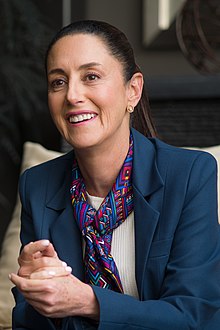
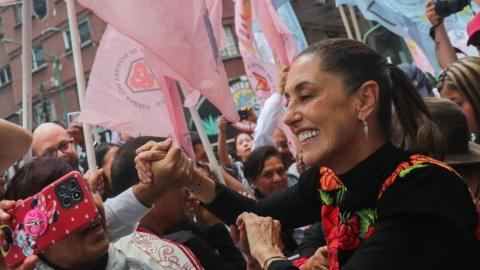

New York Attorney General Sues Meat Processor JBS Over Climate Claims
Story by Heidi Crnkovic ?? 13h
New York Attorney General Letitia James filed a lawsuit today against the American subsidiary of JBS, the world's largest producer of beef products, alleging it misled the public about its environmental impact.
James’ suit centers around claims that JBS USA has promised it will achieve net zero greenhouse gas emissions by 2040 despite documented plans to increase production and, therefore, increase its carbon footprint.
In 2021, the JBS Group, JBS USA's global parent company, reported total global greenhouse gas emissions of over 71 million tons, more than the total emissions of some countries. James says her office seeks to stop JBS USA from continuing what she calls false and misleading marketing practices, pay disgorgement of all ill-gotten profits, and penalties.
"As families continue to face the daily impacts of the climate crisis, they are willing to spend more of their hard-earned money on products from brands that are better for the environment," said James. "When companies falsely advertise their commitment to sustainability, they are misleading consumers and endangering our planet. JBS USA's greenwashing exploits the pocketbooks of everyday Americans and the promise of a healthy planet for future generations. My office will always ensure that companies do not abuse the environment and the trust of hardworking consumers for profit."
James also accuses JBS USA of making several misleading claims about its environmental impact, including pledges to curb deforestation and reduce greenhouse gas emissions.
. . .
Ban the Batistas, a campaign that’s already made some unlikely bedfellows in its fight against JBS, has voiced its support of the lawsuit. The coalition says it includes American farmers, ranchers, consumers, and investors concerned about the risks and "power grab" by JBS' majority shareholders, brothers Joesley and Wesley Batista from Brazil.[/b
More:
https://www.msn.com/en-us/money/companies/new-york-attorney-general-sues-meat-processor-jbs-over-climate-claims/ar-BB1j4b3f
~ ~ ~
You may recall JBS taking a big cash handout from Trump during his "Presidency." He treated the criminal Batista Brothers very well. They're his kind of people, clearly:
Brazil's JBS praises Trump order to keep meat plants open
By Nayara Figueiredo
April 28, 20202:50 PM CDT Updated 4 years ago
SAO PAULO (Reuters) - U.S. President Donald Trump's planned executive order to keep that country's meat plants open will bring certainty to the sector, an executive for Brazilian meatpacker JBS SA said on Tuesday.
JBS Chief Financial Officer Guilherme Cavalcanti praised Trump's decision in a live webcast, after saying the United States only has about 15 days of meat inventory.
Trump plans to issue the executive order on Tuesday, a senior administration official said. The five-page order is designed to give companies more liability protection in case employees catch the virus as a result of having to go to work.
JBS had already closed two U.S. beef plants after workers tested positive, but later reopened them, Cavalcanti said. The company still has one beef plant and one pork factory that remain closed, the CFO said.
More:
https://www.reuters.com/article/us-jbs-outlook/brazils-jbs-praises-trump-order-to-keep-meat-plants-open-idUKKCN22A337/
~ ~ ~
This foreign meat company got U.S. tax money. Now it wants to conquer America.
By Kimberly Kindy
November 7, 2019 at 6:00 p.m. EST

President Trump delivers remarks in support of farmers and ranchers at the White House in May. (Chip Somodevilla/Getty Images)
This story has been updated.Two men in cowboy hats stood behind President Trump in May as he announced a $16 billion agricultural bailout. Trump said the financial relief from his trade war with China would help American farmers, reinforcing an earlier tweet when the president said the funds would help “great Patriot Farmers.”
But not all beneficiaries of the taxpayer-funded program are American farmers or patriots. JBS, a Brazilian company that is the largest meat producer in the world, has received $78 million in government pork contracts funded with the bailout funds — more than any other U.S. pork producer.
JBS’s winning hand in securing a quarter of all of the pork bailout contracts is one example of the power a small number of multinational meat companies now hold in the United States. JBS has become a major player in the United States even as it faces price-fixing and other investigations from the federal government.
. . .
A dozen years ago, JBS did not own a single U.S. meat plant. Today, JBS and three other food companies control about 85 percent of beef production. JBS and Tyson Foods control about 40 percent of the poultry market. And JBS and three other companies control nearly 70 percent of the pork market.
. . .
[Trump farm bailout money will go to Brazilian-owned meatpacking firm, USDA says]
More:
https://www.washingtonpost.com/politics/this-foreign-meat-company-got-us-tax-money-now-it-wants-to-conquer-america/2019/11/04/854836ae-eae5-11e9-9306-47cb0324fd44_story.html
~ ~ ~
JBS among meat firms linked to slavery-tainted ranches in Brazil
By Fabio Teixeira
January 5, 20211:48 PM CSTUpdated 3 years ago
RIO DE JANEIRO (Thomson Reuters Foundation) - Brazilian meatpackers must clean up their supply chains, labor experts said on Tuesday, after an investigation showed six firms bought cattle from ranches that used slave labor.
Brazil's JBS, one of the world's largest meat processing firms, bought cattle from two ranches that later ended up on Brazil's "dirty list" of companies that employed slave labor, the anti-slavery rights group Reporter Brasil said this week.
JBS said it banned the two firms once they were on the dirty list, but it was unfair to expect JBS to stop working with any ranches facing allegations of slave labor from inspectors as those companies also had the right to defend their actions.
"Reporter Brasil is demanding JBS ... block producers based only on inspections (which) ... would be a disregard for that producer's right of defense before public authorities", JBS told the Thomson Reuters Foundation in a statement.
More:
https://www.reuters.com/article/idUSKBN29A2EV/
~ ~ ~
Meat giant JBS linked to illegal deforestation and theft of indigenous land in Brazil
World Animal Protection (PRNewsFoto/World Animal Protection)
NEWS PROVIDED BY
World Animal Protection
03 Oct, 2023, 08:00 ET
New report unveils ongoing evasion of regulations and destructive practices connected to the world's largest meat supplier
NEW YORK, Oct. 3, 2023 /PRNewswire/ -- A new investigation conducted by Repórter Brasil in coordination with World Animal Protection reveals that JBS recently bought corn and soy crops from a farming operation that illegally exploits indigenous land, clearing and planting it in violation of Brazilian law.
Investigators visited the farm operation in question, met with neighboring communities, and spoke to workers, including employees in soy crushing plants and transportation, who confirmed the crops were destined for JBS as animal feed. The indigenous communities residing in these regions have voiced distressing concerns pertaining to persistent harassment and intimidation, including confrontations with armed security personnel retained by the grain farmers supplying JBS.
Annette Manusevich, Farming Campaign Manager at World Animal Protection, US said: "The ongoing land-grabbing activities that support JBS's profits and expansion are a deeply troubling testament to its disregard for local communities, the environment, and animals. These illegal practices not only strip indigenous people of their ancestral lands but also contribute to environmental degradation and pose a severe threat to wildlife habitats. It is imperative that we confront these unethical practices, demand accountability, and work towards a more sustainable and equitable future for all."
This investigation is a stark reminder of JBSrepeatedly failing to exercise due diligence over its grain supply chain. Instead, the corporate giant operates as a global "meat machine" with a long history of covering up and greenwashing its harmful practices. In fact, this report is further proof that JBS continues to obscure its role in the ongoing relentless deforestation of biodiverse ecosystems in Brazil driven by increasing feed grain production. The company must be held accountable for this ecological disaster, the profound loss of wild animals, and the illegal exploitation of indigenous land and its people.
https://www.prnewswire.com/news-releases/meat-giant-jbs-linked-to-illegal-deforestation-and-theft-of-indigenous-land-in-brazil-301944986.html
Ancient 4,750-Year-Old Megalith Discovered On Peruvian Mountain
PUBLISHED
2 days ago
The unique circular plaza is one of the earliest ever found in the Americas.
author
MADDY CHAPMAN
Edited by Francesca Benson

What remains of the ancient plaza today.
Image credit: Toohey et al., Science Advances, 2024 (CC BY-NC 4.0)
An ancient ceremonial megalith dated to 4,750 years ago has been discovered in the Peruvian Andes. The find is older than the Great Pyramids of Egypt and represents one of the oldest circular plazas in the region.
Unearthed at an archaeological site called Callacpuma in northern Peru’s Cajamarca valley, the plaza measures around 18 meters (60 feet) across and features concentric walls of large, free-standing, vertically placed megalithic stones, the likes of which have never been seen before in the Andes.
Having been the subject of archaeological interest for nearly 60 years, the site has now been excavated and subjected to radiocarbon dating, placing its construction between 2632 and 2884 BCE, during the Late Preceramic period. This dating makes the plaza one of the earliest examples of monumental, megalithic architecture in the Americas.
“This structure was built approximately 100 years before the Great Pyramids of Egypt and around the same time as Stonehenge,” Associate Professor Jason Toohey, who led the project, said in a statement.
More:
https://www.iflscience.com/ancient-4750-year-old-megalith-discovered-on-peruvian-mountain-73114
~ ~ ~
Archaeologists Discover Mysterious Stone Circle Built Before Great Pyramids
Published Feb 28, 2024 at 3:55 PM EST
By Aristos Georgiou
Science and Health Reporter
Archaeologists have discovered a mysterious stone circle in the Andes Mountains that they say was constructed before the great pyramids of Egypt.
The circular stone plaza, which measures around 60 feet in diameter, consists of two concentric walls made from unshaped stones set vertically in the ground, according to a study reporting the find in the journal Science Advances.
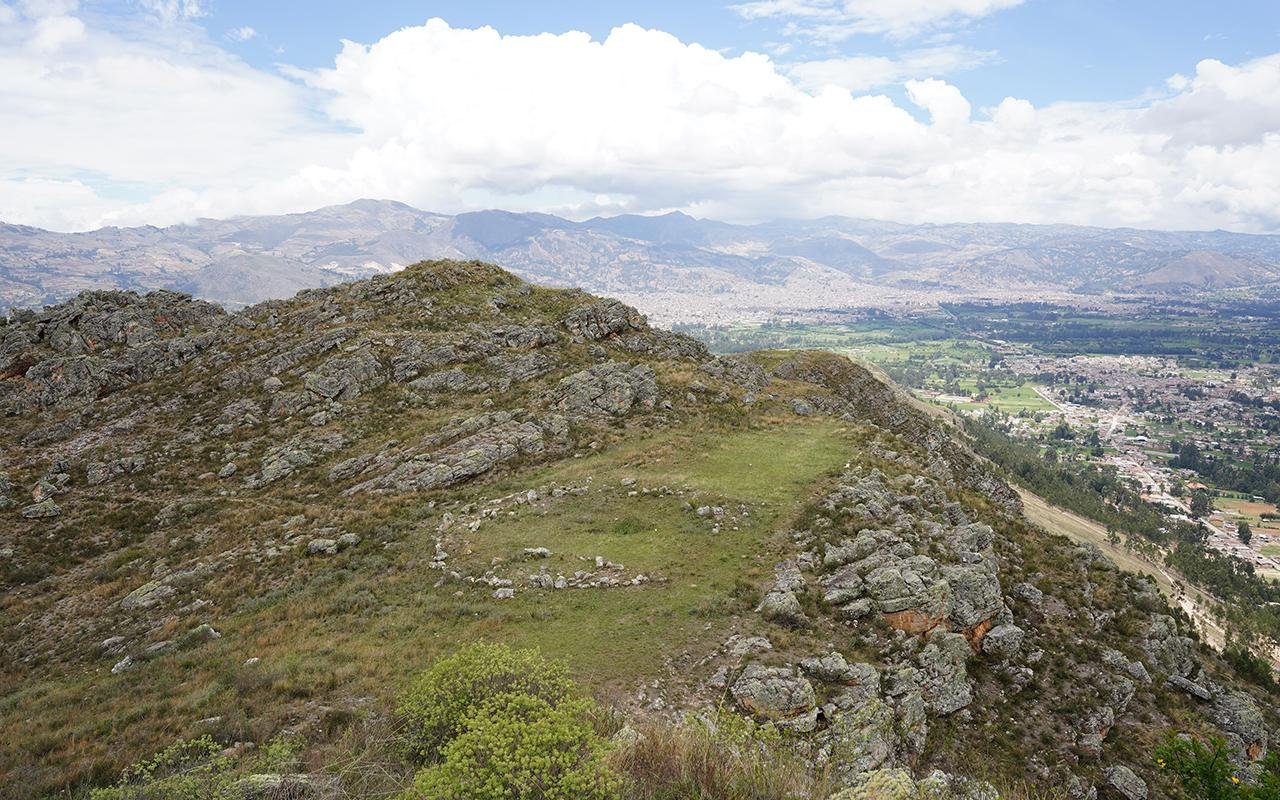
The monument is at the Callacpuma archaeological site in northern Peru's Cajamarca Basin, which lies around 10,000 feet above sea level near the summit of a peak in the Andes. Stretching for more than 5,000 miles along the western edge of South America, the Andes range is the longest in the world.
Using radiocarbon dating techniques, researchers determined that initial construction of the circular plaza took place around 4,750 years ago, corresponding to the "Late Precaremic" period of Andean archaeology.
More:
https://www.newsweek.com/archaeologists-discover-mysterious-stone-circle-built-before-great-pyramids-1874439?piano_t=1
El Salvador's Bukele tells US conservatives to 'put up a fight'
His popularity soared after he cracked down on crime and gangs.
In Summary
•Mr Bukele - who calls himself the world's coolest dictator - was re-elected for a second term this month.
•Following his election in 2019, he turned El Salvador from the murder capital of the world into one of the region's safest countries.

Image: EPA
The president of El Salvador told American conservatives to "put up a fight" against the "global elites" in order to get their country back.
"The people of El Salvador have woken up, and so can you," Nayib Bukele said in a speech at the biggest annual gathering of conservatives in the US.
. . .
His government carried out sweeping arrests of anyone suspected of being involved in gang activity during his first term in office.
An estimated 75,000 people have been arrested under emergency measures that have been repeatedly extended, alarming human rights groups.
Amnesty International recently criticised the "gradual replacement of gang violence with state violence" in the country.
More:
https://www.the-star.co.ke/news/world/2024-02-23-el-salvadors-bukele-tells-us-conservatives-to-put-up-a-fight/
Profile Information
Member since: 2002Number of posts: 160,656